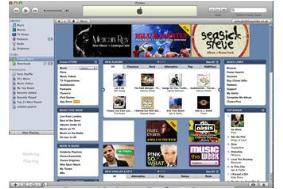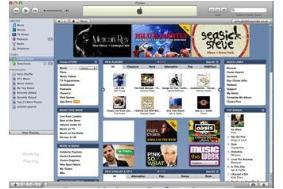Apple threatens iTunes closure over copyright fee rises
Will Apple really close the iTune store if a 66 per cent increase in royalty fees for digital music is approved in America today?


The decision by a three-judge panel will set rates for the next five years. The Digital Media Association, which represents Apple and other online music services, wants the rate to be pegged at 4.8 cents per track.
Why should this matter? Well, according to the BBC, Apple has threatened to close its iTunes store if it has to absorb the rate hike and has said it's unwilling to raise its 99 cents a song price. Any increase in royalty rates would have to be paid for by Apple, the record company or consumer.
Last year Eddy Cue, Apple's vice-president for iTunes told the CRB: "If the iTunes Store were forced to absorb any increase in the mechanical royalty rates, the result would be to significantly increase the likelihood of the store operating at a financial loss.
"Apple has repeatedly made clear that it is in this business to make money, and would most likely not continue to operate the iTunes store if it were no longer possible to do so profitably."
It is believed Apple pays around 70 per cent of its digital music revenue to the record companies, which in turn pass on a percentage to artists.
Earlier this year Apple abandoned its plan to reduce the price of downloads in the UK to bring them into line with the rest of Europe, as we reported here in July. This followed an investigation into iTunes pricing by the European Union.
Given that Apple is expected to sell 2.4bn songs this year, giving it an estimated 85 per cent share of the digital download market, it seems unlikely that the company will abandon the digital download market completely.
Get the What Hi-Fi? Newsletter
The latest hi-fi, home cinema and tech news, reviews, buying advice and deals, direct to your inbox.
The Recording Industry of America says sales of digital songs and albums rose 46 per cent last year to $1.2bn (£652m).
